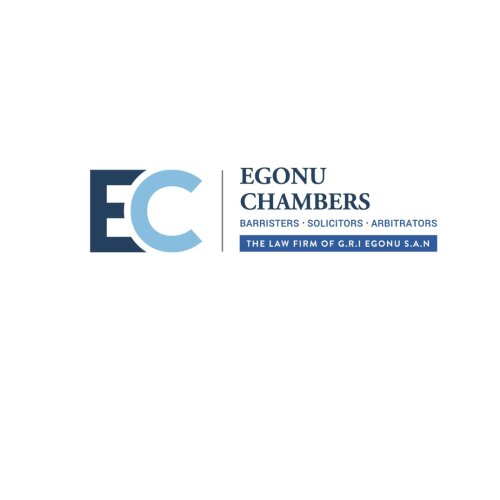Best Collaborative Law Lawyers in Maitama
Share your needs with us, get contacted by law firms.
Free. Takes 2 min.
Free Guide to Hiring a Family Lawyer
List of the best lawyers in Maitama, Nigeria
About Collaborative Law in Maitama, Nigeria:
Collaborative Law is a legal process used to resolve disputes involving family matters, such as divorce, child custody, and property division, without going to court. In Maitama, Nigeria, Collaborative Law aims to facilitate communication and cooperation between parties to reach mutually beneficial solutions with the assistance of trained professionals.
Why You May Need a Lawyer:
You may need a lawyer in Collaborative Law proceedings to ensure your rights are protected, to provide legal advice on the terms of the agreement, and to help you navigate the process effectively. A lawyer can help you negotiate with the other party and draft legal documents to formalize agreements reached through collaboration.
Local Laws Overview:
In Maitama, Nigeria, Collaborative Law operates within the framework of Nigerian family law. This includes specific laws on divorce, child custody, and property rights that may impact the outcomes of collaborative negotiations. It is important to have a lawyer who is familiar with local laws and customs to guide you through the process.
Frequently Asked Questions:
1. What is the role of a Collaborative Law attorney?
A Collaborative Law attorney represents your legal interests in the collaborative process, provides legal advice, and helps negotiate agreements with the other party.
2. How is Collaborative Law different from mediation?
Collaborative Law involves each party having their own attorney, while mediation typically involves a neutral third party mediator. In Collaborative Law, the focus is on reaching a mutually agreeable solution through negotiation.
3. Can I still go to court if Collaborative Law fails?
If the collaborative process fails to reach an agreement, both parties must hire new attorneys to represent them in court proceedings. The collaborative attorneys are disqualified from further involvement.
4. Is Collaborative Law legally binding?
Once an agreement is reached through the collaborative process and signed by both parties, it becomes legally binding and enforceable in court.
5. How long does a Collaborative Law process typically take?
The timeline for Collaborative Law varies depending on the complexity of the issues involved and the willingness of the parties to cooperate. It can range from a few months to over a year.
6. Can Collaborative Law be used for business disputes?
While Collaborative Law is commonly used for family matters, it can also be used for business disputes, contract negotiations, and other civil conflicts.
7. What are the advantages of Collaborative Law over traditional litigation?
Collaborative Law offers a more amicable and cost-effective way to resolve disputes without the need for court intervention. It allows parties to maintain control over the outcome and promotes open communication.
8. How do I find a Collaborative Law attorney in Maitama, Nigeria?
You can search online for Collaborative Law attorneys in Maitama, Nigeria, or ask for referrals from friends, family, or other legal professionals familiar with the collaborative process.
9. What are the key principles of Collaborative Law?
The key principles of Collaborative Law include a commitment to resolving disputes without court intervention, a focus on respect and cooperation between parties, and a dedication to finding mutually beneficial solutions.
10. Can children be involved in the Collaborative Law process?
Children can be involved in the Collaborative Law process through the assistance of child specialists and other professionals trained in child-focused advocacy. Their best interests are always a priority in collaborative negotiations.
Additional Resources:
For more information on Collaborative Law in Maitama, Nigeria, you can contact the Nigerian Bar Association or the Collaborative Practice Nigeria for guidance and assistance in finding a collaborative attorney.
Next Steps:
If you are considering Collaborative Law for your legal matter, it is important to consult with a qualified attorney who can provide you with personalized advice and representation throughout the process. Contact a local Collaborative Law attorney in Maitama, Nigeria to discuss your options and determine the best course of action for your situation.
Lawzana helps you find the best lawyers and law firms in Maitama through a curated and pre-screened list of qualified legal professionals. Our platform offers rankings and detailed profiles of attorneys and law firms, allowing you to compare based on practice areas, including Collaborative Law, experience, and client feedback.
Each profile includes a description of the firm's areas of practice, client reviews, team members and partners, year of establishment, spoken languages, office locations, contact information, social media presence, and any published articles or resources. Most firms on our platform speak English and are experienced in both local and international legal matters.
Get a quote from top-rated law firms in Maitama, Nigeria — quickly, securely, and without unnecessary hassle.
Disclaimer:
The information provided on this page is for general informational purposes only and does not constitute legal advice. While we strive to ensure the accuracy and relevance of the content, legal information may change over time, and interpretations of the law can vary. You should always consult with a qualified legal professional for advice specific to your situation.
We disclaim all liability for actions taken or not taken based on the content of this page. If you believe any information is incorrect or outdated, please contact us, and we will review and update it where appropriate.








